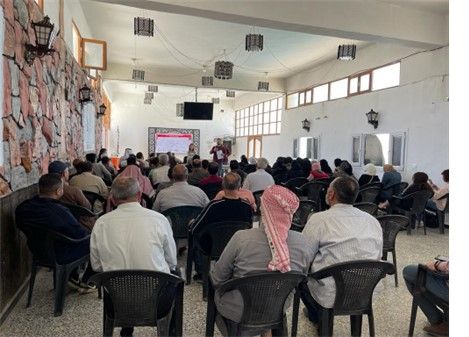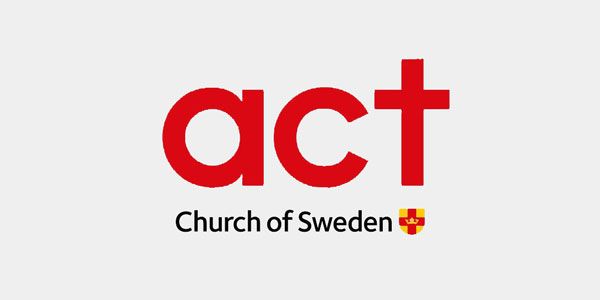The Issue
The conflict in Syria resulted in radical changes in the lives of the population ranging from human and material losses, displacement and asylum, and social and political impact. To support communities’ resilience to become less reliant on external aid, therefore a Survivor and Community-led response (SCLR) advances the following:
- SCLR empowers communities to take charge of their own crisis responses, fostering resilience and autonomy. By connecting external aid with local efforts, it contributes to more effective and contextually relevant humanitarian action.
- Preparedness and Rapid Response: Helps develop strategies to prepare for crises and respond quickly when they occur.
- Protection and support for survivors: It works to provide psychological and social support to survivors of crises and helps them deal with difficult experiences.
- Community Empowerment: Encourages the participation of local communities in developing solutions and making joint decisions.
- Awareness and Education: It works to spread awareness about safety and crisis response and enhance people’s knowledge.
- Coordination and partnerships: It works to enhance cooperation between organisations and stakeholders to achieve the maximum benefit from joint efforts.
For sustainability and long-term impact: It aims to build the capabilities of communities to deal with future crises and achieve a positive impact.
SCLR/Group Cash Transfer (GCT)
SCLR/Group Cash Transfer (GCT) enables communities to lead their own response to crises, promoting self-reliance and independence. It enhances humanitarian efforts by bridging the gap between external support and local initiatives, leading to more impactful and tailoured aid.
Survivor and community-led response (SCLR) is a way of working which aims to support the capacities of crisis-affected people, identified as the first responders in crises. SCLR balances the relationship between locally-driven responses and external support which strengthens the sense of dignity and empowerment of communities.
The Project
With the support of Church of Sweden, the SCLR project was launched in the Aleppo and Raqqa Governorates in North East Syria (NES) as a pilot initiative. Support was extended to eight community groups, leading to the successful implementation of eleven initiatives. The project’s reach spanned cities, villages, and informal settlements in Raqqa and Menbij. SCLR seeks to encourage volunteer work and the active participation of individuals in achieving sustainable development and improving the quality of life, while empowering vulnerable communities and enhancing cooperation, coordination, and effective communication.
DCA formed volunteer groups and provided them with the necessary training on how to deal with crises and how to respond to crises by researching all the problems they face, setting priorities, searching for the resources available to them, and seeking solutions to these problems. Following this training, DCA also provided protection training, financial resources, logistics, human resources and meal training to build their capacity and empowerment. Finally, DCA supported these groups with small financial grants to implement the selected initiatives.

The Change
The project acknowledges the inherent resilience within communities, already equipped to respond to crises. Through this project, DCA aimed to augment these existing capabilities further. By providing the necessary training and support, the communities abilities to navigate challenges effectively. This collaborative effort not only strengthened community bonds but also fostered trust among members and organisations.
The Results
The project has had a positive impact on the community at large, promoting cooperation, communication, and social cohesion. Communities are self-reliant in terms of addressing challenges. The project also worked to build the capabilities of individuals and urged them to exploit the resources available to them and worked to build trust between them and organisations and local authorities.
One of the problems faced by one of the communities was the lack of street lighting. The community representatives worked together to search for the priority problem, and then worked together to present the proposal and implement the initiative, which had a significant positive impact. Given the lack of lighting in neighbourhoods at night, security measures were particularly crucial for women and the elderly, especially during activities like heading to the mosque at dawn or buying bread from a collective point. After installing lighting devices in the neighbourhood, security increased, thefts decreased, and the community members, especially women and elders, began to feel safer when going out.
Partners
In Syria 2023, the project was pilot implemented by own Staff. In 2024 the project is partner-led.
Thematic Relevance
This work is closely linked to the theme of “Save.” The survivor and community-led crisis response project aims to save lives, protect communities, and provide support during times of crisis. By empowering individuals and fostering community resilience, it contributes to saving both immediate and long-term well-being.
DanChurchAid has been in Syria since 2015. DCA implements projects to directly target people most in need, we identify local community groups in hard-to-reach areas to provide small, flexible grants to survivors and community-led response, and we support shelters for people affected by war. Internally displaced people. We also have protection teams and mine clearance teams.
About the project
Full title: Enhanced resilience and protection efforts in in Northeast Syria (NES) through survivor and community led responses and community-based protection programming.
Areas: Group Cash Transfers in Aleppo and Raqqa Governorate – Menbij District and Raqqa City (Villages: Job Hamza, Hemer Labda, Kabber Kaber / City: Al-Qittar neighbourhood, Informal Settlements: Rachid, Al Hadba settlements)
Period: February 2023 – December 2023
Amount: 54,000 USD
Number of people reached by end of project: 102 people (8 community groups)
Donor: Church of Sweden


